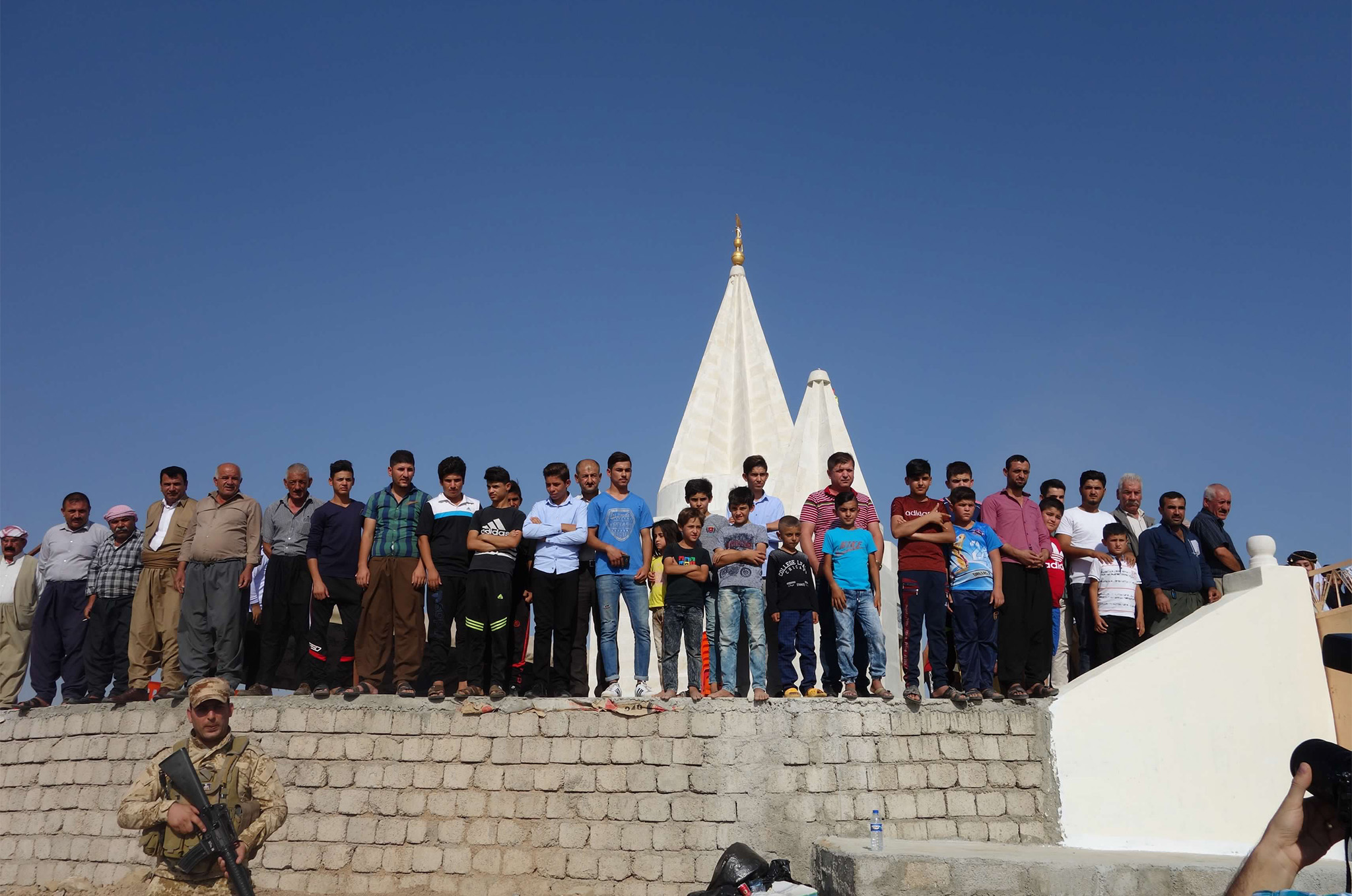It’s August 2014 in the northern Iraqi town of Sinjar. The police have fled; the army had crumbled. ISIS is rampaging and rolls into Sinjar that summer. The international community is asleep—and the Yazidis (Ezidis) are defenseless. ISIS perpetrates the unthinkable—men and boys are slaughtered, while women and girls enslaved and raped—all because they believe in something different. A genocide happened on our watch.

August 3 is the day the Yazidi community marks as the start of their genocide. Many are pausing to remember what happened just six years ago and to recommit to “never again.” But while remembrance is critically important, it alone is not enough. Much like “faith without works is dead,” remembrance without action shows weighty statements to be nothing more than arid euphemisms.
The Yazidi community is clear on what they need, they want peace, to return to their homes to live in safety and dignity. But they need help.
Yazidism is one of the oldest religions in the world, dating back 4,000 years. Before the ISIS invasion, the Yazidi community in Iraq was estimated at around 500,000 members, with other pockets living in Syria, Turkey, and Iran. Impoverished, they lived on the edge, with the events of 2014 almost extinguishing their flame. But due to their perseverance, and the help of the Iraqi and Kurdistan Regional governments and international community, they survived. Yet the future is still uncertain.
Six Years Later
Thousands of Yazidis still live in internally displaced persons camps around northern Iraq. Despite global recognition of ISIS’s atrocities, efforts have failed to see Yazidis return in large numbers. A major challenge is the lack of resolution regarding the situation of Sinjar and other disputed areas. Many Yazidis may not be ready to leave the relative security of the camps, with fear of ISIS resurging and Turkish airstrikes. And as USIP has highlighted, security will be critical, along with perpetrator accountability, and reconciliation.
However, what Yazidis want most is accountability and the reunification of families.
Justice and peace go hand in hand. Bringing to justice those who committed these evil acts would dissuade future perpetrators, while also breaking the cycle of violence by demonstrating justice systems can work. The prosecution of an Iraqi man in Germany for what observers consider the first trial for genocide against Yazidis is one such step in the right direction. But more needs to be done in Iraq to build an effective and durable peace.
And too many women and girls are still missing. There are occasional good news reports of survivors finding their way home from Syria, but they are increasingly few and far between. Time is running out to rescue the children.
It’s important to note that the grim reality facing Yazidis is shared by other religious minorities in Iraq. New reports about challenges confronting Christians and Kakais paint a daunting picture. Assisting one community in concert with efforts to help others could revitalize religious life in northern Iraq.
Hope for Renewal
While the situation is dire for religious minorities, there is still hope for renewal. Since 2014, I’ve come to know the Yazidi people and consider many my friends. I’ve been impressed by their kind spirit, their steadfastness in the face of impunity, and their commitment to maintaining their way of life and beliefs. And they are brave; just listen to the courage of Nadia Murad and others who tell her story of suffering and endurance to the world.
I saw this courage firsthand in September 2017, when visiting northern Iraq as a State Department official. I had the honor of cutting the ribbon on a reconstructed Yazidi temple in Khoshaba. The temple had been rebuilt by the community themselves, without international assistance. It was a significant event, with older men and women, youth, and young children crowding around to happily mark the revival of Yazidi life in this small town.
Despite the uncertainty and loss, they celebrated. The Yazidis were not going to disappear. It was a powerful symbol that they would not be exterminated, that the genocide failed, that ISIS had lost.
But the fight to protect and preserve Iraq’s religious diversity is far from over. Threats still loom, either from terrorism or the slow disintegration of their community. Yazidis practice a unique faith, part of the intricate and delicate tapestry of religious life in Iraq. Their safe return to Sinjar would ensure this ancient culture is not lost from its ancestral homeland. Yazidis have survived for thousands of years. Based on this determination, and with help from the international community on return, reconciliation, and justice, they will continue to live out their faith and customs.





